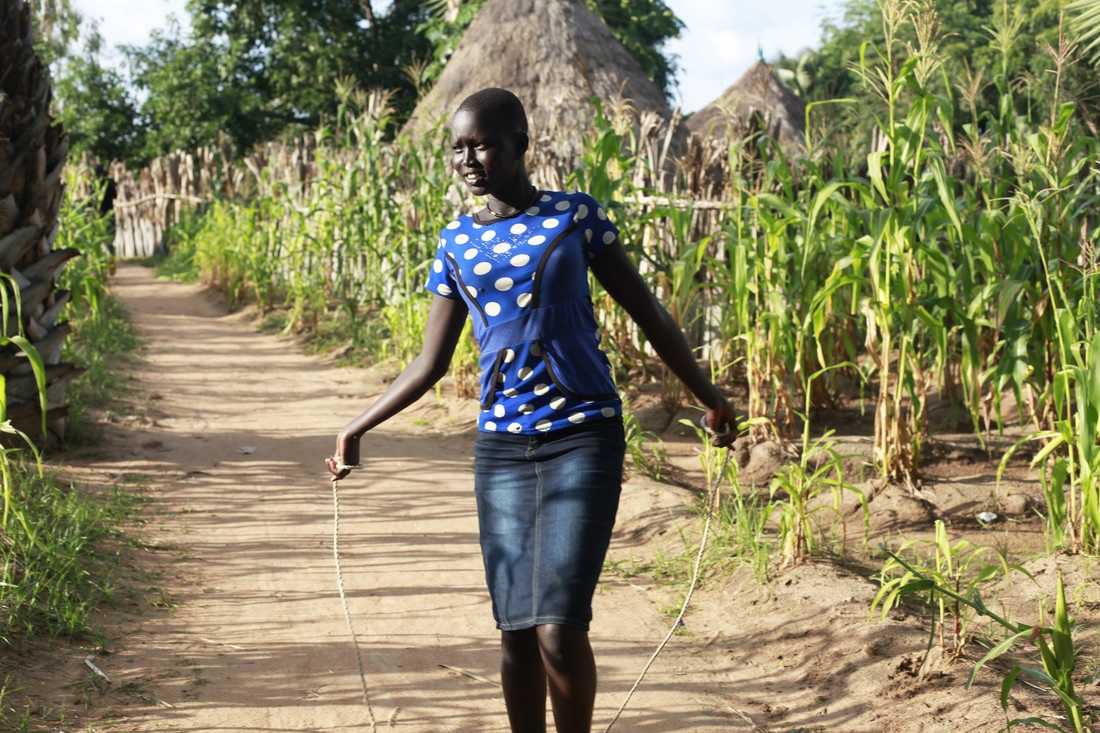Changing the story for young women in South Sudan
Twenty-year old Nyaluk of South Sudan had her whole life in front of her. But a cruel manifestation of gender inequality prevented the young woman from growing up and pursuing her dreams. In April 2019, she was beaten to death by her brothers for refusing to marry a suitor who had offered her family 40 cows in exchange for her hand.
Nyaluk’s fate is tragic, but not unique. The rate of child and forced marriage in South Sudan is one of the highest in the world. The war has caused people to flee their homes and lose their livelihoods, leaving the marriage of daughters, in exchange for a dowry, as one of their few remaining sources of income and survival.
Child marriage has many ripple effects. Girls are more likely to die in pregnancy and childbirth, drop out of school, and suffer gender-based violence. It is just one example of how women and girls are disproportionately hurt by humanitarian crises due to their unequal status in society.
Tackling gender inequality and gender-based violence should be top priorities in places like South Sudan, but these issues are often seen as less urgent than “life-saving priorities” like food, shelter and water. But as Nyaluk’s story shows, lives are at stake when gender issues are ignored.
Women like Nyaluk should have a say in the decisions that affect their lives, including if and when to get married and to have children. This is precisely why Oxfam Canada launched the What She Knows Matters campaign last fall – to ensure that women’s needs are met, and their rights championed, in every humanitarian crisis.
We asked the Government of Canada to announce a feminist humanitarian policy that committed to addressing gender-based violence, sexual and reproductive health and rights (SRHR), and the root causes of gender inequality in humanitarian settings. Thousands of Canadians supported this ask, and the Canadian Government listened. Just last month, Minister Maryam Monsef announced a new humanitarian policy, entitled A Feminist Approach: Gender Equality in Humanitarian Action. This policy will now direct more funding to the neglected but crucial issues that affect women and girls in humanitarian crises.
This funding will reach the people who need it most - the millions of women and girls in emergencies who are at heightened risk of gender-based violence, trafficking, unintended pregnancy, maternal mortality, and child and forced marriage – just because they are women in a man’s world.
Improving women’s rights in humanitarian settings is crucial for women, and for entire nations. Gender equality is the number one predictor of a country’s peacefulness – more significant than its level of democracy, wealth or its ethnic or religious makeup. This is why Oxfam is working with local organizations and activists in South Sudan to address the gender inequality that was responsible for Nyaluk’s tragic death.

“I want to be a ruler one day. I want to be a queen, a strong queen. Right now, I feel like playing the jumping rope makes me strong. That’s why I love playing it and I want to have my picture taken with it,” said Mary, 16. Oxfam teamed up with international photojournalist Andreea Campaneau to meet some of the young generation girls in Nyal and find out more about their lives, hopes and dreams. The girls collectively called themselves “Noura Nyal” kids. “Noura” means “love yourself” in the local Nuer language. Together they practiced basic photography skills and talked about what being a child meant to them and what futures they saw for themselves.
For the past year, Oxfam has supported a local radio program called Peace of Her Mind. It broadcasts weekly across the country and tackles some of the toughest issues facing women in South Sudanese society. Radio is the main source of news and information in the country, where literacy rates are very low.
The program is helping to educate people and debunk myths. For example, when a male caller argued that child marriage was important for increasing the country’s population, the radio host pointed to statistics of young women dying in childbirth because their bodies were not prepared to give birth. Gradually, the radio show is helping to change people’s minds about harmful behaviours.
Young women like Nyaluk are so much more than victims of their unlucky circumstances. They have dreams, ideas and skills. They deserve to reach their full potential. Unleashing their power can only make our troubled world a better place.
Oxfam has been working in the area that is now South Sudan for over 30 years. Last year we reached over 600,000 people with lifesaving assistance as well as development projects. In South Sudan, Oxfam focuses on advancing gender justice, supporting resilient livelihoods and promoting good governance and active citizenship.

